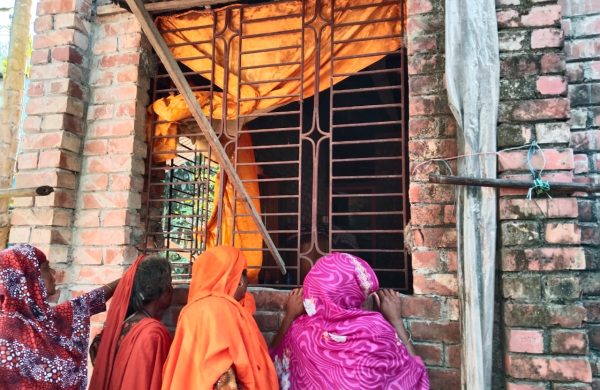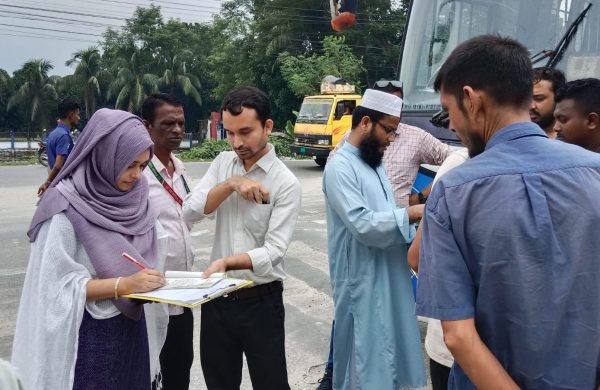Violence claims 557 workers’ lives in 44 months
- Update Time : Friday, September 12, 2025

TDS Desk:
At least 557 workers from both formal and informal sectors have been killed and 2,107 others injured in incidents of labour exploitation and violence across the country over the past 44 months (Jan 2022-Aug 2025), according to study reports by the Human Rights Support Society (HRSS).
Experts say government inaction and exploitative practices by factory owners, particularly in the readymade garments (RMG) sector, are fuelling the unrest.
Of the total deaths, 66 workers were killed and 773 injured in 149 violent incidents between January and August this year alone.
In August, at least 20 violent incidents left two dead and 30 injured, while July saw five fatalities and 23 others wounded in 17 clashes.
The Bangladesh Bureau of Statistics (BBS) reported in its 2022 labour force survey, published in March 2023, that the country’s workforce stood at more than 73.4 million. Of them, only around 15% are in the formal sector, while 85% remain in informal employment, said Advocate Nazrul Islam of the Solidarity Centre.
Unrest continues to escalate on the streets.
Workers of Eurozone Fashion Garments clashed with police after blocking the Kuril intersection on Kuril Biswa Road in Dhaka’s Vatara area, demanding unpaid wages and allowances. A number of workers, journalists and police officers were injured.
On the same day, employees of ASBRM Steel Mills blocked the Dhaka-Sylhet highway at Rupganj in Narayanganj, while workers of Evergreen Factory BD Ltd in Nilphamari EPZ staged demonstrations on 2 September against layoffs and closure. That protest left one worker, Habibur Rahman, dead and 50 others injured.
Experts warn that unresolved disputes are driving workers into repeated confrontations.
“It is being observed that workers are often forced to go on strike to demand arrears. Factory authorities close factories illegally without paying the workers’ dues,” said Syed Sultan Uddin Ahmed, chief of the Labour Reform Commission and executive director of the Bangladesh Institute of Labour Studies (BILS).
“Due to no initiatives by the government and the employers to fulfil their just demands, the workers are finally going on strike and the law enforcement agencies and the workers are getting involved in clashes, which is absolutely undesirable. On the one hand, the workers are injured and on the other hand, dissatisfaction in the industry is increasing. The firing on the workers is a direct violation of human rights.”
Labour leaders also expressed frustration at the authorities’ inaction.
“Every day, workers have to stage demonstrations at Labour Bhaban in the capital and other parts of the country to realise their demands, including arrears,” said Ahsan Habib Bulbul, joint coordinator of SKOP, an alliance of 14 national labour federations.
He added that in the RMG sector, terminated workers are effectively blacklisted. “If any factory terminates a worker, another factory does not employ him or her after taking their fingerprints. It means the factory owners maintain an internal practice not to employ terminated workers.”
Bulbul criticised the interim government for failing to act decisively.
“The interim government has done nothing visible for the workers except the formation of the labour reform commission. The government should quickly implement reforms based on the commission’s reports.”
Officials, however, point to weaknesses within worker organisations.
“The organisations of the workers are not well organised,” said Fahmida Akhter, additional secretary (Labour Wing) at the Ministry of Labour.
“Some of their leaders sit for meetings with the Department of Inspection for Factories and Establishments and factory owners. After meetings, the representatives seem not to make the workers understand. As a result, difficulties arise.”















